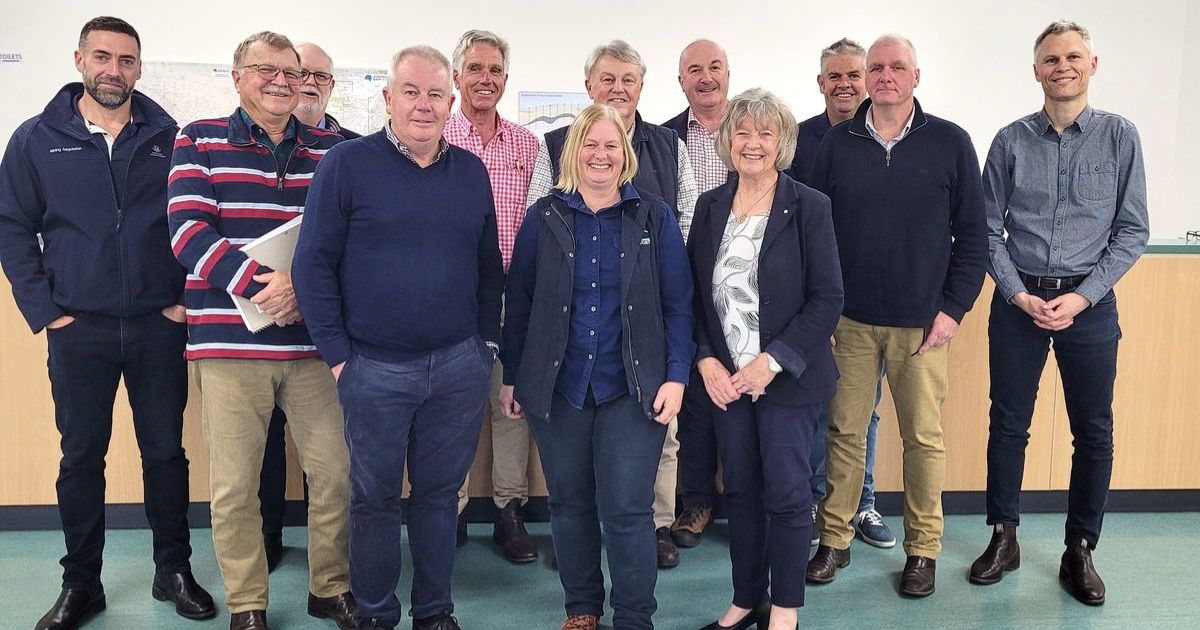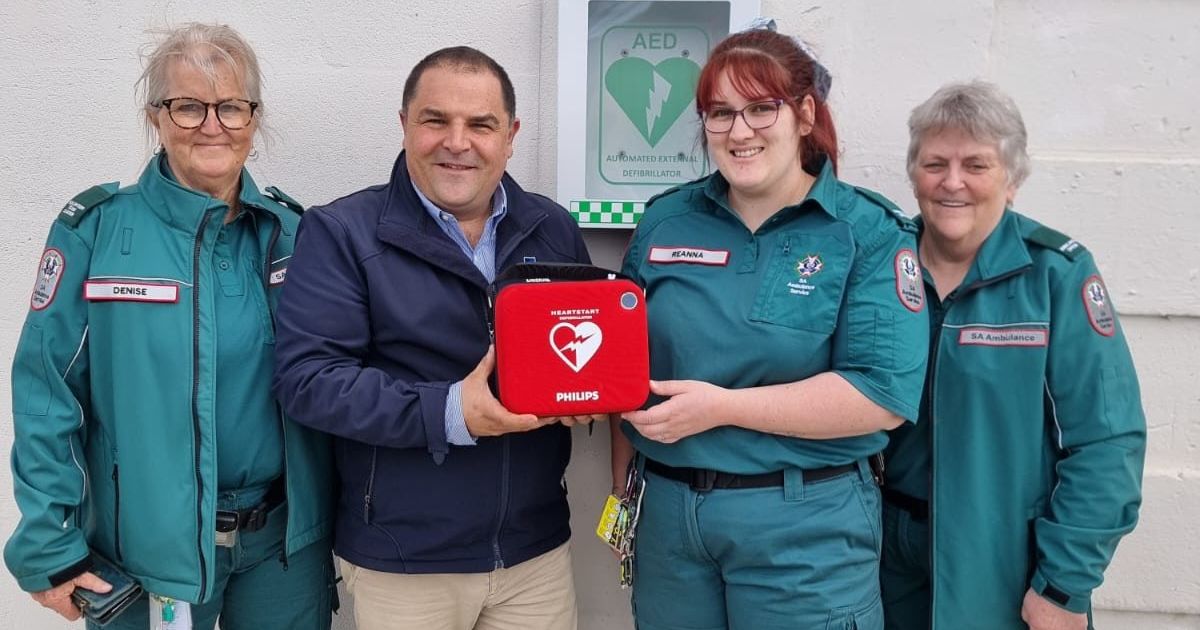Compassion is at the heart of volunteers
Volunteers from In Home Hospice Care (IHHC) Mount Gambier all have different reasons and motivations for getting involved in the critical service but they all identify the same main quality needed to work in the space – compassion.
It is at the heart of why Liz Ferguson undertook the training and is part of the IHHC Mount Gambier team.
“I want to live in a compassionate community, where resources and services are shared around fairly to provide support for all in our community,” Liz said. “If I can help provide those services and share the compassion and support around, that’s a great feeling.”
Securing the IHHC service for Mount Gambier was a long but worthwhile battle and work in the palliative care space continues as a group of committed community members continue to try and establish a purpose-built palliative care facility to only enhance what is on offer courtesy of the volunteer program.
But while that campaign continues, the work of the current IHHC volunteers and the need to recruit more remains vital.
“Kindness, caring and compassion are great qualities to start with, and a desire to be supportive of others,” Liz said, when describing what it takes to be a volunteer in the palliative care sector.
“It is essential that volunteers understand and abide by the frameworks of confidentiality and privacy which we are bound by.
“Certainly flexibility and an ability to go with the flow/ roll with the unexpected has been very applicable.
“A good dose of life experience has been helpful. “
Liz, and her husband, were part of the inaugural group of volunteers that underwent training to set up the IHHC Mount Gambier service and their involvement was motivated by personal experience of end of life care.
“I had had previous experience being part of the family and team caring for a couple of my friends in their last days and was on the lookout for a more formal community organisation where I could be useful in providing similar support to people in the community,” Liz said. “I had wanted to be a palliative care volunteer after I retired but that service had closed down. A friend of mine told me about the IHHC service and I followed up.
“I think it’s extremely important that carers are supported in many ways, to enable them to recharge their batteries and receive support, to acknowledge the long term nature of their caring and to help them along the way as much as possible. “
Liz cannot speak highly enough of the training provided, including the ongoing nature of the learning.
“Our training was with staff from the Warrnambool Hospice Organisation through online sessions and sharing of printed materials and useful resources,” she said. “Regular information sessions, training in manual handling, discussions with Pastor Dave Sigley and presentations by other volunteers in our group who had different experiences to share were all part of the mix, as were references and recommendations that we could follow up, such as courses set up online by Palliative Care SA. We have updates and further training sessions as necessary.”
And as with so many volunteering roles, there are those almost unexpected personal rewards for giving up your time and expertise to help others.
“I enjoy the feeling of being useful and being able to support the people around me,” Liz said. “I would like to think that hospice services will be available for me when I need them, so I figure if I can help build the service in our community now, it will be a help to me in the longer term.”
Fellow volunteer Linda Walker also got involved after her won personal experience of end-of-life care.
“I got involved because I looked after a close family member after his terminal illness diagnosis,” she said. “I was supported by the palliative care team at Community Health. It was early COVID and no one could assist us at home due to restrictions. However, I realised that that sort of help was not available here anyway. Hospice care is essential for end-of-life support.
“My opinions and beliefs can be in the background as I support people in the community but I am to respect and work for the client while I am with them, and hopefully bring comfort and some ease to the clients and their carers in the most difficult of situations.”
Linda sharing the same views as her IHHC colleagues when it comes to what it takes to be a volunteer.
“Compassion, and the understanding of the grief that the dying person is experiencing, and that family and friends are going through as they try to help,” she said, as well as working in areas where your skills best fit. “I help with administrative work, as I decided I was not suited to the home care roles. So, just helping a little now and then with ordinary tasks that are required to run a successful and sensitive volunteer organisation.”
JANE SHEPHERD
Jane Shepherd is the current IHHC Mount gambier volunteer administration coordinator, joining the service in April 2021.
“I was extremely excited to be a part of this new community initiative but very daunted at the same time as it was a new position in the organisation and a new volunteer service for the community,” she said. “It was very humbling and exciting to meet the volunteers who are very passionate about making a positive difference to someone’s end of life experience.
“My manager and I worked hard to establish a culture where volunteers are appreciated for their skills and knowledge while being encouraged to build on their skills and grow in their role through education and communication.”
In a nut shell Jane’s role it to support the dedicated team of volunteers, including recruiting, training, and monitoring volunteers who provide comfort and practical care to community members with life-limiting illnesses.
“I build strong relationships with clients, assisting with the placement of volunteers and maintaining ongoing communication to ensure their needs are met,” Jane said. “By carefully matching volunteers with clients through thoughtful discussions, I ensure a smooth and compatible partnership that benefits clients, caregivers, and volunteers alike.”
The role also includes conducting in-home risk assessments and briefings for both clients and volunteers to ensure successful placements as well as maintaining a volunteer roster, organising monthly meetings to keep volunteers informed and educated on organisational matters, and providing ongoing debriefing, guidance, and support.
“Ultimately, my goal is to foster a strong, cohesive team of volunteers who feel well-supported and valued in their roles,” Jane said. “All our volunteers are community minded, passionate, caring, fun and generous. They come from all walks of life and want to make a positive difference to vulnerable people at the end of their life. Most have had an experience of death that they would like to emulate or change for the people they support.”
And with three years of experience in the space under her belt, Jane is well-equipped to recommend becoming part of the IHHC Mount Gambier team.
“If you are interested in palliative care and want to make a difference to someone’s end of life journey, we are a group of people who work together to provide a community-based compassionate service to those who are terminally ill – this includes their families, caregivers and friends,” she said. “It has been an honour to get to know and work with this amazing group of people including the committee of management, my manager Sandi Elliott and all the volunteers. We have grown into to a very close knit welcoming group who support each other.”
She is also all too aware of the value of the service and the need for it to be front and centre of end-of-life care in the region.
“What our care support volunteers do is not always easy, and at times it can be very challenging, but our volunteers have stated it is so rewarding and some have developed lifelong friendships,” Jane said. “We also have people who volunteer their time providing board governance, admin support, training, handyman work and fundraising – these too are very much appreciated.”



















